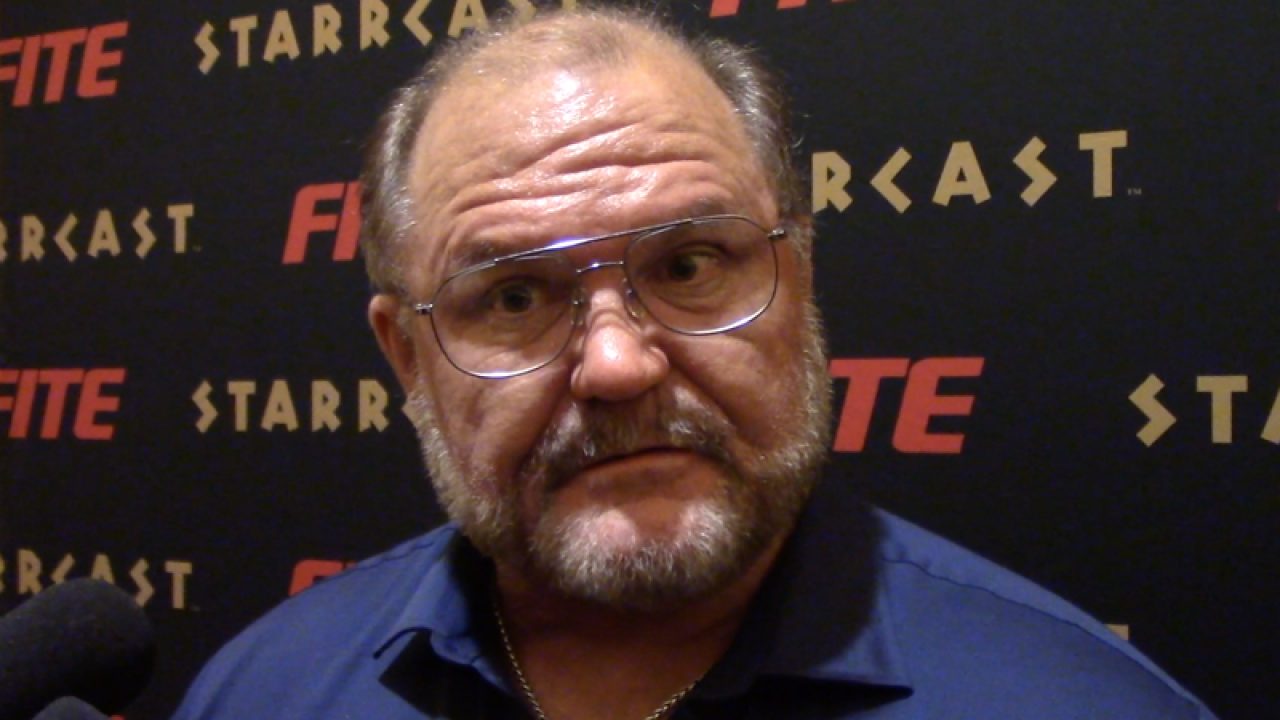Arn Anderson Reflects On Changes Under Bill Watts & WCW’s Attendance Challenges

In a recent episode of “The ARN Show,” wrestling legend Arn Anderson delved into the alterations implemented by Bill Watts during his tenure in WCW and the impact of the wrestling industry’s decline in the early 1990s.
Discussing the differences in working TV and house shows under Bill Watts, Anderson highlighted the peculiar dynamics where one might expect strict rule enforcement on TV, but it was actually the house shows where regulations were meticulously monitored. Any violation, such as throwing an opponent over the top rope without disqualification, could result in legitimate fines. Additionally, punctuality was crucial, as tardiness was promptly reported to Watts, who enforced disciplinary measures. He said,
“Well strangely enough, you would think TV where all the rules would be enforced to the letter. And the house shows it was, you know, you had a agent there and I think it was at that time Grizzly Smith. And he was, I’m sure, taking notes. And if you threw a guy over the top and it didn’t get DQ’d, people were gonna get fined — legitimately get fined. You better not be late. You know, there was one hour before the show window that you had to be there. You better not be there [late] cause I’m sure Bill told Grizzly, ‘Make notes. If these guys are late, let me know. I’m gonna find ’em.’ And there was never an issue of guys being late anyway. That’s what’s crazy, you know, when you start in pushing the rules and shoving the rules down everybody’s throat when nobody’s breaking the rules, that kinda leaves a bad taste. That’s just being the boss and playing the boss.”
Sharing his insights on WCW’s attendance being down in the 1990s, Anderson attributed the decline to the absorption of Jim Crockett Promotions, which had a detrimental effect on the wrestling industry as a whole. Rather than experiencing growth, companies experienced contraction, leading to job losses for many wrestlers. WCW, in particular, grappled with continuous leadership changes, talent turnover, and the departure of prominent figures like Ric Flair. Anderson drew attention to the challenge of establishing a new identity for WCW while coping with the absence of a crucial element, similar to having a royal family without a reigning monarch. He said,
“I think when Jim Crockett was absorbed, I think wrestling in general took a hit because it shrunk. Instead of the business growing, I think every company has shrunk. Got some guys were out of jobs. I just think that the new company and going through all the changes — the new company being WCW — changing leadership all those times and changing talent, you know, Ric Flair leaving, gotta remember it’s a pretty big deal. Everybody seems to forget that the flagship of the NWA — and a lot of people looked at WCW as being the new NWA, which it really wasn’t. But it was missing it’s — you know, it’s like trying to say you have a royal family, but you don’t have a Queen of England. There’s a piece missing, and it’s a major piece. It’s not a minor piece. And what they’ve been used to for a very, very long time, they don’t have. So it was, that company was still learning how to book live events and how to book loops and save money on that stuff. And it was just still a learning process in a lot of ways.”
You can keep up with all your wrestling news right here on eWrestlingNews.com. Or, you can follow us over on our Twitter and Facebook pages.
